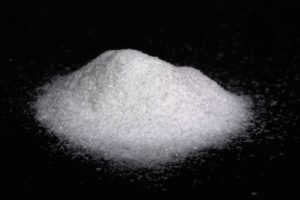 Another recent study found that consuming artificial sweeteners do harm. In August a study found that artificial sweeteners alter both the oral and gut microbiomes in a negative way. Other earlier studies found an association with high blood pressure, inflammation, weight gain, vascular dysfunction, and increased risk of cancer.
Another recent study found that consuming artificial sweeteners do harm. In August a study found that artificial sweeteners alter both the oral and gut microbiomes in a negative way. Other earlier studies found an association with high blood pressure, inflammation, weight gain, vascular dysfunction, and increased risk of cancer.
Now, a large study found that high consumption of artificial sweeteners is associated with increased risk of heart disease (cardiovascular disease), including heart attacks and strokes (cerebrovascular events).
What is high consumption of artificial sweetener? One individual packet of artificial sweetener or a 100 mL of diet soda is about 42.46 mg/day, while in this study high sweetener consumption is about 77.62 mg/day. So high consumption is not even 2 diet sodas or packets per day.
Bottom line: Artificial sweeteners are NOT a healthy or good alternative to sugar (or maple syrup or honey). Also, avoid high fructose corn syrup - that has its own problems. Artificial sweeteners are found in highly processed foods - try to also avoid those for your health.
Cardiovascular diseases are the leading cause of death worldwide. Avoiding sugar and instead consuming artificial sweeteners is not going to help you achieve health. But improving your overall diet will, such as eating a diet rich in whole grains, fruits, vegetables, seeds, nuts, legumes (beans).
From Medical Xpress: Study suggests possible link between artificial sweeteners and heart disease
A large study of French adults published by The BMJ today suggests a potential direct association between higher artificial sweetener consumption and increased cardiovascular disease risk, including heart attack and stroke.
The findings indicate that these food additives, consumed daily by millions of people and present in thousands of foods and drinks, should not be considered a healthy and safe alternative to sugar, in line with the current position of several health agencies.
Artificial sweeteners are widely used as no- or low-calorie alternatives to sugar. They represent a $7.2 billion (£5900m; €7000m) global market and are found in thousands of products worldwide, particularly ultra-processed foods such as artificially sweetened drinks, some snacks, and low calorie ready meals.
To investigate this further, a team of researchers at the French National Institute for Health and Medical Research (Inserm) and colleagues drew on data for 103,388 participants (average age 42 years; 80% female) of the web-based NutriNet-Santé study, launched in France in 2009 to investigate relations between nutrition and health.
Dietary intakes and consumption of artificial sweeteners were assessed by repeated 24-hour dietary records and a range of potentially influential health, lifestyle, and sociodemographic factors were taken into account. Artificial sweeteners from all dietary sources (beverages, table top sweeteners, dairy products, etc.) and by type (aspartame, acesulfame potassium, and sucralose) were included in the analysis.
A total of 37% of participants consumed artificial sweeteners, with an average intake of 42.46 mg/day, which corresponds to approximately one individual packet of table top sweetener or 100 mL of diet soda.
Among participants who consumed artificial sweeteners, mean intakes for lower and higher consumer categories were 7.46 and 77.62 mg/ day, respectively.
Compared with non-consumers, higher consumers tended to be younger, have a higher body mass index, were more likely to smoke, be less physically active, and to follow a weight loss diet. They also had lower total energy intake, and lower alcohol, saturated and polyunsaturated fats, fiber, carbohydrate, fruit and vegetable intakes, and higher intakes of sodium, red and processed meat, dairy products, and beverages with no added sugar. However, the researchers took account of these differences in their analyses.
During an average follow-up period of nine years, 1,502 cardiovascular events occurred. They included heart attack, angina, angioplasty (a procedure to widen blocked or narrowed arteries to the heart), transient ischemic attack and stroke.
The researchers found that total artificial sweetener intake was associated with an increased risk of cardiovascular disease (absolute rate 346 per 100,000 person years in higher consumers and 314 per 100,000 person years in non-consumers).
Artificial sweeteners were more particularly associated with cerebrovascular disease risk (absolute rates 195 and 150 per 100,000 person-years in higher and non-consumers, respectively).
Aspartame intake was associated with increased risk of cerebrovascular events (186 and 151 per 100,000 person-years in higher and non-consumers, respectively), while acesulfame potassium and sucralose were associated with increased coronary heart disease risk (acesulfame potassium: 167 and 164 per 100,000 person-years; sucralose: 271 and 161 per 100,000 person-years in higher and non-consumers, respectively).
This is an observational study, so it can't establish cause, nor can the researchers rule out the possibility that other unknown (confounding) factors might have affected their results.
